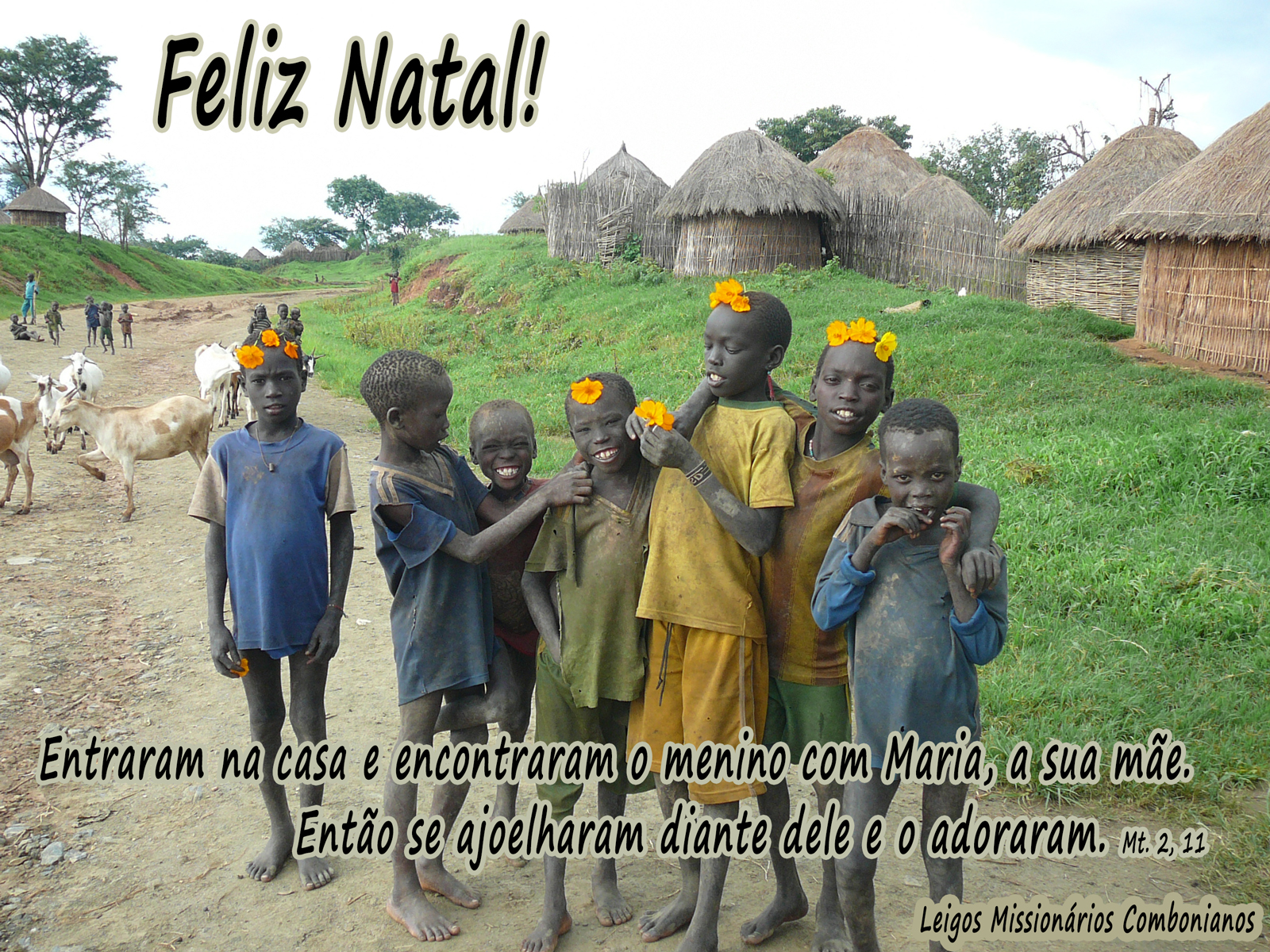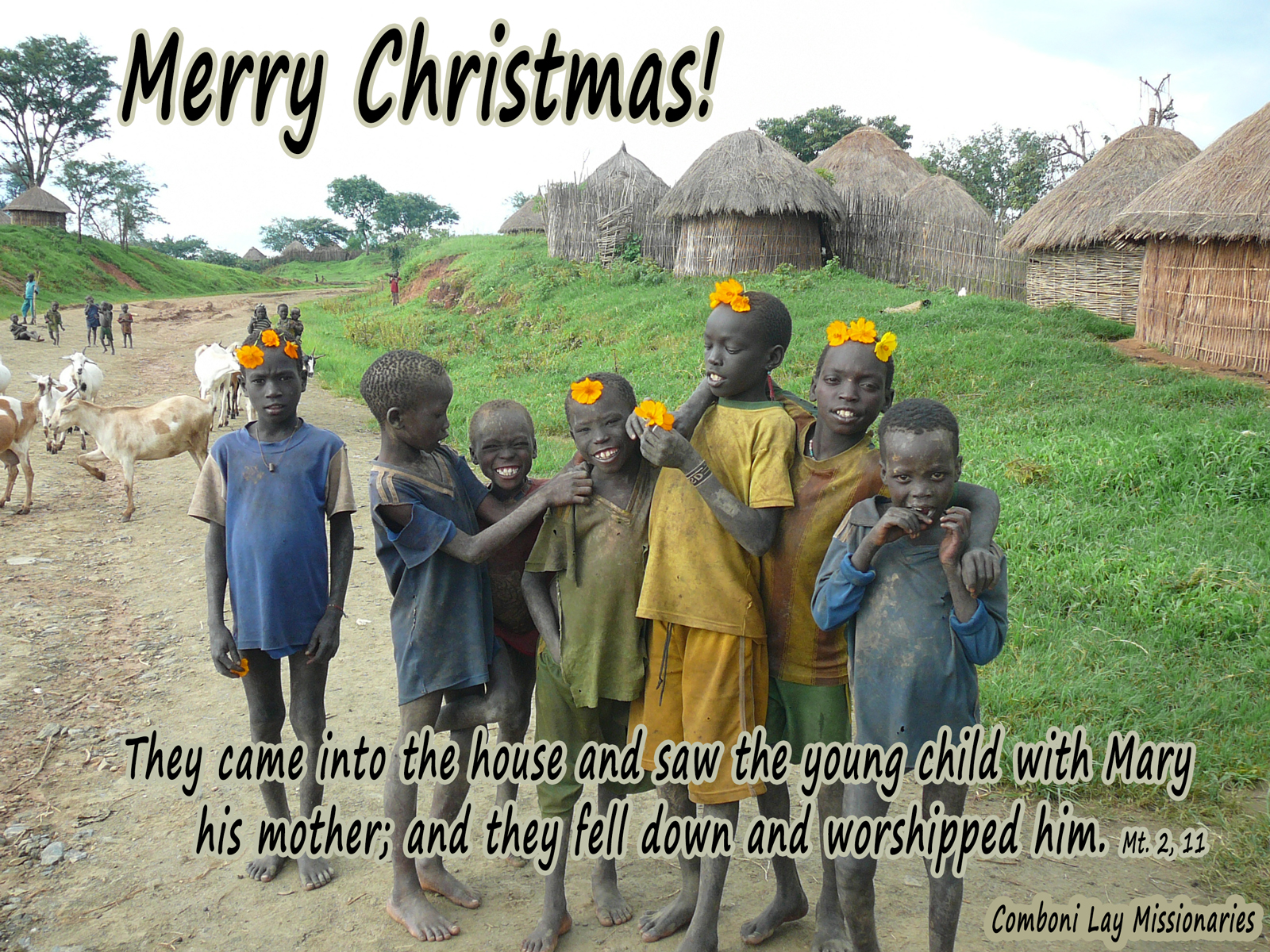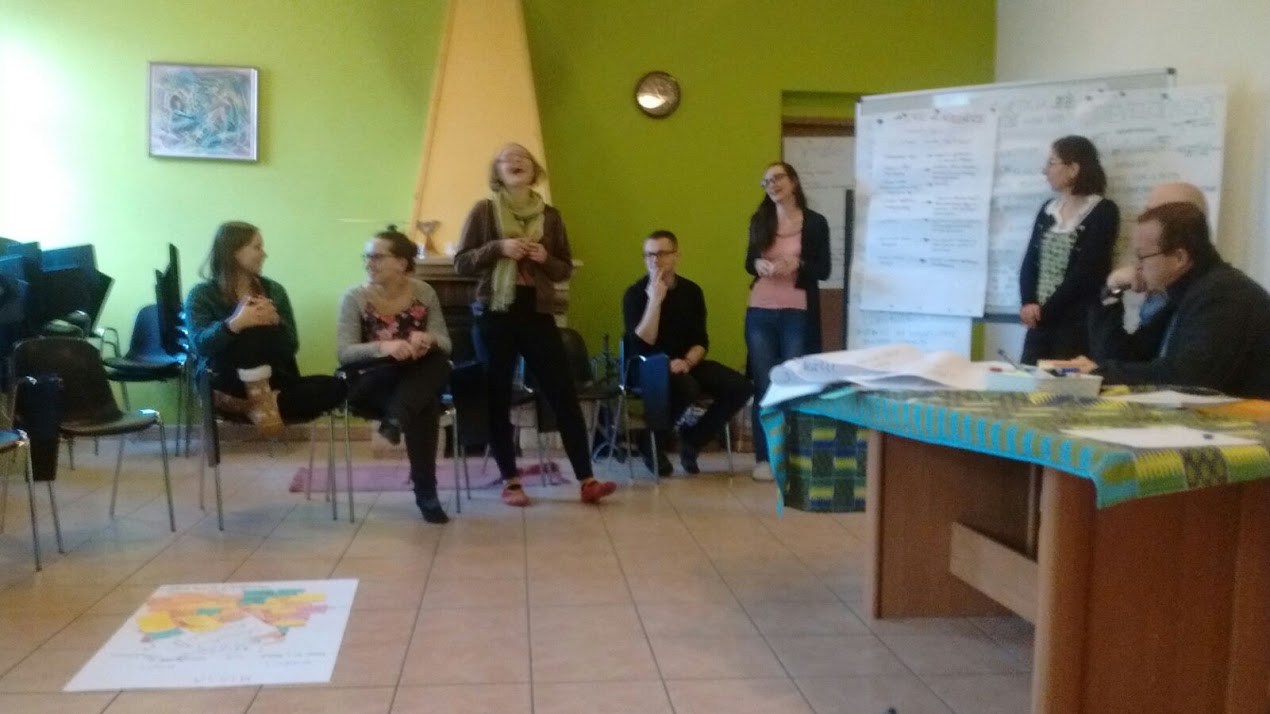Spirituality
“Christmas Eve” Polish CLM meeting
On 16-18th December we had our last formation meeting in 2016.
It was very extraordinary time. The main topic for this weekend was “Community”.
On Friday, after the supper, we had some introduction, and we talked a little bit about the components of CLM community. We looked closer at this issue on Saturday during some workshops conducted by Alberto de Portilla – our CLM International Coordinator from Spain.
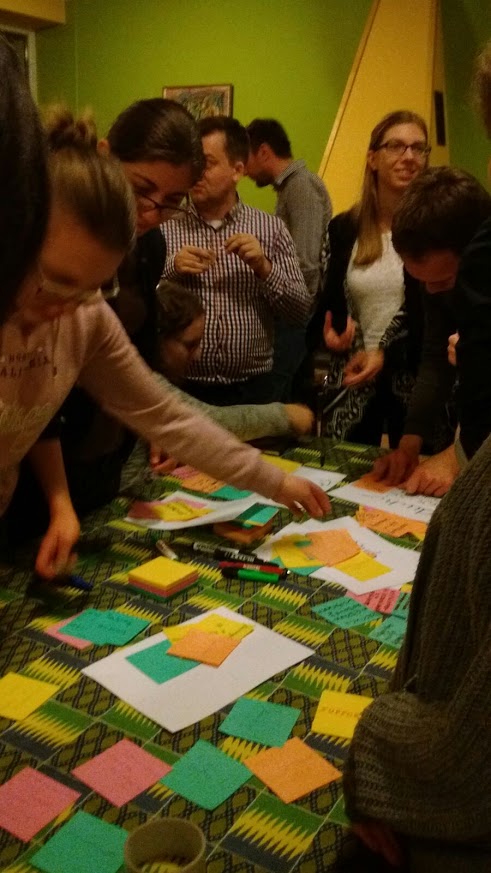 During our Bible lesson with Sister Joanna, we were analysing Haggai Book. Israel as “exclusive People” needed to cooperate, live as a community and trust God in order to rebuild their Temple.
During our Bible lesson with Sister Joanna, we were analysing Haggai Book. Israel as “exclusive People” needed to cooperate, live as a community and trust God in order to rebuild their Temple.
In the evening, there was a time for the Christmas Eve dinner. After reading story about Jesus’ birth from the Holy Bible, we shared a special wafer when exchanging Christmas greetings. After that, we started to eat delicious Christmas food: croquettes with beetroot soup, dumplings with dried plums, a lot of gingerbreads and some traditional food from Silesia (administrative part of Poland) – “moczka”. It was also a time for the Christmas presents, it was a lot of fun and joy for all of us.
Late evening we started vigil in the Chapel, praying for all the continent in many different languages, having a special prayer for all the missionaries spread all over the World, and at midnight we participated in traditional Mass called “Pasterka”.
On Sunday, during the Comboni lesson we explored St. Daniel Comboni’s attitude regarding community and participation of everyone in the missions through the study of his Plan for the regeneration of Africa.
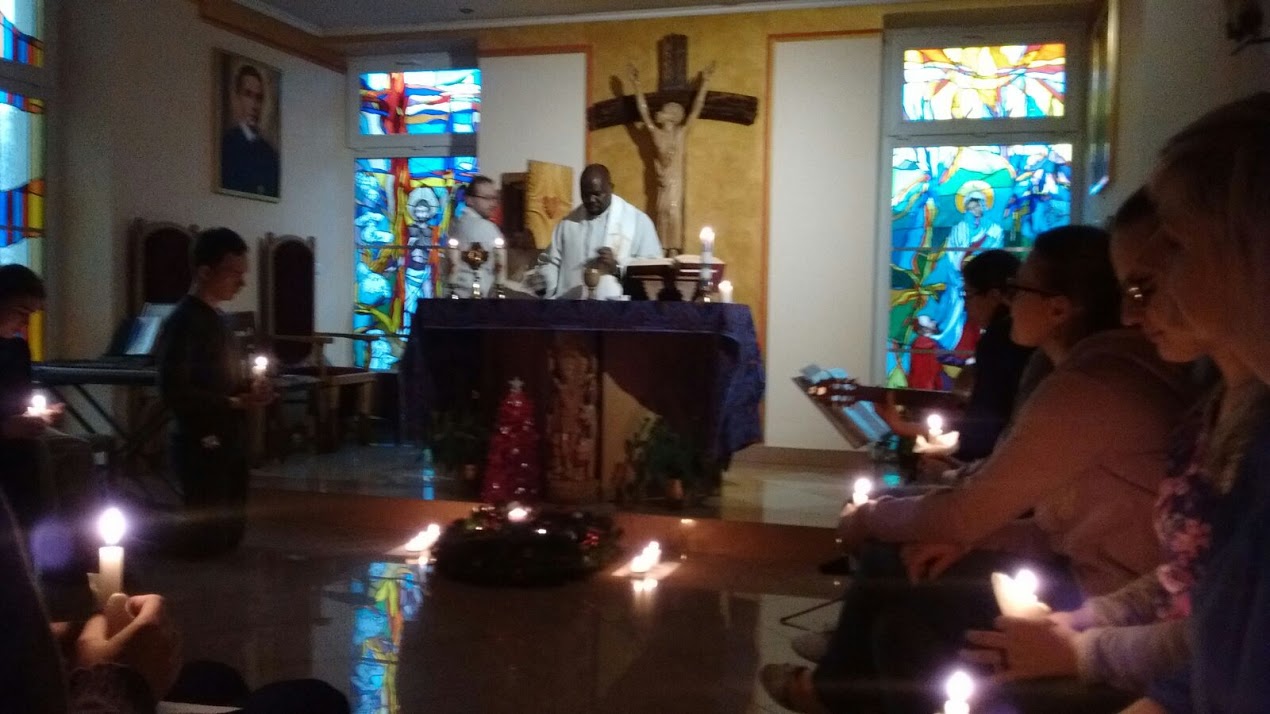 Jesus is born every day, we just need to be courageous enough to notice it and accept Him in our hearts!
Jesus is born every day, we just need to be courageous enough to notice it and accept Him in our hearts!
Merry Christmas to all of you!
CLM Poland
«Mind the gap»
 It’s my lasts days in London, where I arrived a month and a half before. This moment, while I am writing, seems a scene almost worthy of movie: I am sitting in the underground station, waiting for the tube that will take me home, ‘looking for yesterday’, ‘for everything and ‘for nothing’. At the same time as I am mentally anticipating the journey to Poland, increasingly close, I cannot avoid remember the days “around here”.
It’s my lasts days in London, where I arrived a month and a half before. This moment, while I am writing, seems a scene almost worthy of movie: I am sitting in the underground station, waiting for the tube that will take me home, ‘looking for yesterday’, ‘for everything and ‘for nothing’. At the same time as I am mentally anticipating the journey to Poland, increasingly close, I cannot avoid remember the days “around here”.
In all of this, almost without realizing it, the warning expression recorded on the ground, “mind the gap”, called my attention. Gap between… Save space … How much space is enough for us to be safe? From when and until when should we keep this space? And waiting for what? The “right time”? To go where?
Pope Francis frequently reminds us that we are invited to come out of our comfort zone and have the courage to reach all the peripheries. We should feel impelled to go further, closer, higher, deeper. To pilgrimage more.
These weeks have been, and continue to be, essential in this time of preparation for the mission. Not only because the opportunities to be in places that never had, to meet new people, the language training and learning, … But also for what I am learning about life in community and «space». I have learned that this time we live in, whatever it is, is the time of learning.
We are trainees and heirs of the great love, the love of Christ. Even if some moments seem hard to face and we think that there’s no way out; even if our «appreciation» converges to impatience, I am maturing the idea that loving God means to accept with patience and attention the meetings with others as messages of full sense, even we not feel able to understand them immediately and properly.
I remember that on my first day of classes, in one of the guides that have been given to me after the inscription, was written with great emphasis “the present is now and the future starts right now”. In fact, if we don’t give up on life, our present, we are always starting and building the future. Every day that the Lord gives us is a blessing and a sign of faith in us.
In this community I have learned about the importance of building a life that is not a closed and intransigent life; I am learning about the importance of not get hide or behind the line where everything seemed safe or guarantee. Though, I am learning that the waiting and the patience will always be essentials requests and parts of our lives that need to be mature.
I entrust that my trip did not begin here, and it is not even to finish so somewhat here. In the true travels, in the great travel, I do not think that questions about what we do have considerable interest. We came, we are and we go. And then it makes sense to feel and realize in our lives the expression of the words of the Holy Books: in this world, we have not a stable address/ residence. The scenery of the world is passing, everything has a provisional dimension.
Heidegger once compared the journey of life to a person walking in a huge forest where i tis pitch dark, where it is raining and thundering, and one has a completely lost the way. There is a bolt of lightning and for an instant the way is clear. Then it is dark again. All one can and must do is keep going in the direction one saw illuminated by the lightening flash. This is our challenge and our opportunity: to keep going, to trust that God is faithful, to remember the way in the light of those key moments through which God intervenes in our lives.
Marisa Santos. CLM Portugal
Assembly of the Comboni Lay Missionaries (CLM) in Portugal
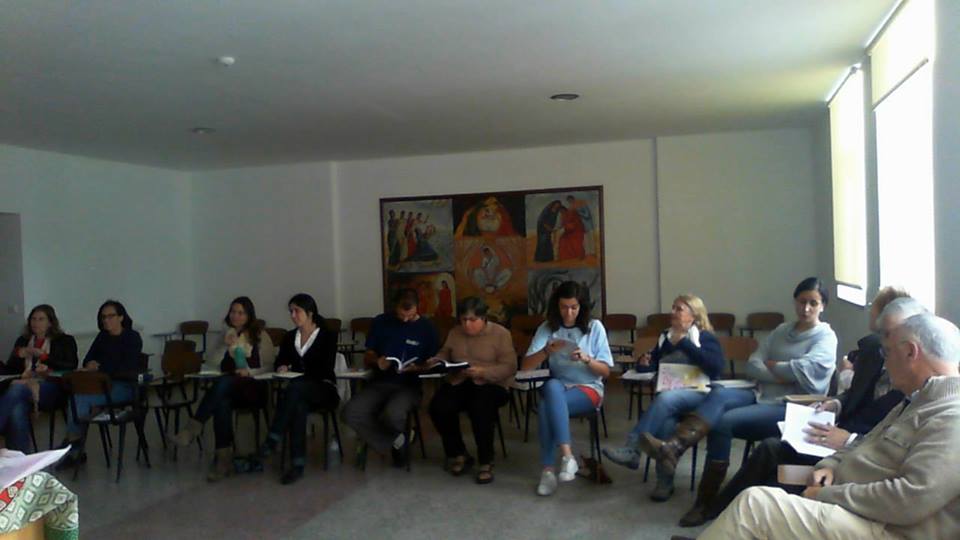 During the weekend of October 15-16, 2016 the CLM of Portugal gathered in Viseu for their National Assembly and for their second formation meeting on the topic of, “The Word as (with) Vocation,” moderated by the CLM Paula Clara.
During the weekend of October 15-16, 2016 the CLM of Portugal gathered in Viseu for their National Assembly and for their second formation meeting on the topic of, “The Word as (with) Vocation,” moderated by the CLM Paula Clara.
During the Assembly, we as CLM had the opportunity to reflect over what was accomplished this year and see the many marvels the Lord has worked in us. We remembered the return of Marcia from Mozambique, and of Élia from the Central African Republic. We remembered the departure of María Augusta for the Central African Republic and of Marisa, who is studying the language in England. Many milestones were reached along the way right here. Above all we concentrated in organizing the European Assembly of the CLM to which we were all committed and for which we felt responsible, and in which we all worked a lot without leaving any detail to chance. We also spent time evaluating and then electing the various ministries of those who, as CLM, are responsible for the organization, such as the coordinating team, the formation team, the finances and many other things that are necessary for the future life of the CLM.
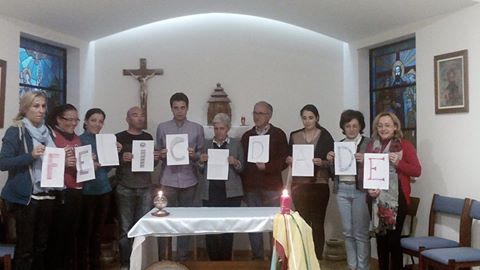 All this reflects what Pope Paul VI wrote in the dogmatic constitution Lumen Gentium (#7): “As all the members of the human body, though they are many, form one body, so also are the faithful in Christ. Also, in the building up of Christ’s Body various members and functions have their part to play. There is only one Spirit who, according to His own richness and the needs of the ministries, gives His different gifts for the welfare of the Church.” We are different people with different ministries and responsibilities. We journey together here at home and beyond our borders, praying and committing ourselves in the name of God according to the charism of Comboni.
All this reflects what Pope Paul VI wrote in the dogmatic constitution Lumen Gentium (#7): “As all the members of the human body, though they are many, form one body, so also are the faithful in Christ. Also, in the building up of Christ’s Body various members and functions have their part to play. There is only one Spirit who, according to His own richness and the needs of the ministries, gives His different gifts for the welfare of the Church.” We are different people with different ministries and responsibilities. We journey together here at home and beyond our borders, praying and committing ourselves in the name of God according to the charism of Comboni.
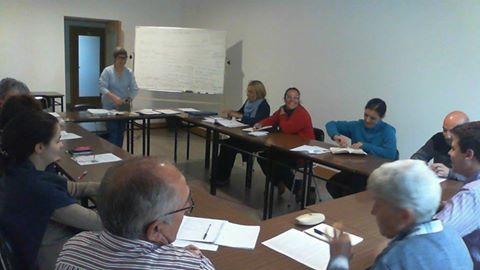 The meeting on formation could not have been more connected with the Assembly. While some were reflecting on vocation, others were reflecting on what their vocation had produced. In such a journey there are moments when walking together is not enough, but we felt the need to abandon ourselves to divine providence through our commitment. For this reason, on Sunday, relatives and friends joined the CLM family to witness the promise of Neuza, Rufina and Paula.
The meeting on formation could not have been more connected with the Assembly. While some were reflecting on vocation, others were reflecting on what their vocation had produced. In such a journey there are moments when walking together is not enough, but we felt the need to abandon ourselves to divine providence through our commitment. For this reason, on Sunday, relatives and friends joined the CLM family to witness the promise of Neuza, Rufina and Paula.
The journey takes place by walking as a community whose nucleus is Christ. After a day of formation and discernment we wanted to pray with our lives what we daily pray in the Our Father, “May your will be done.” We choose to follow a path of happiness, knowing fully well in advance that we will suffer, laugh, cry, love, fall, get up, get lost and be found. Here we feel at home, the hugs get longer, the laughter echoes in the hall, and often we pray with tears and in silence, because words are not enough to express the love of God. Here we learn that there are no distances that can stand in the way of staying united. Here, like St. Augustine, we turn Love into a greater prayer. Together, we are the thousand lives for mission that St. Daniel Comboni dreamed of. We are the dream of Comboni and we dare to follow in his footsteps making it possible to have much more than a thousand lives for the mission.
New CLM logo in Portugal
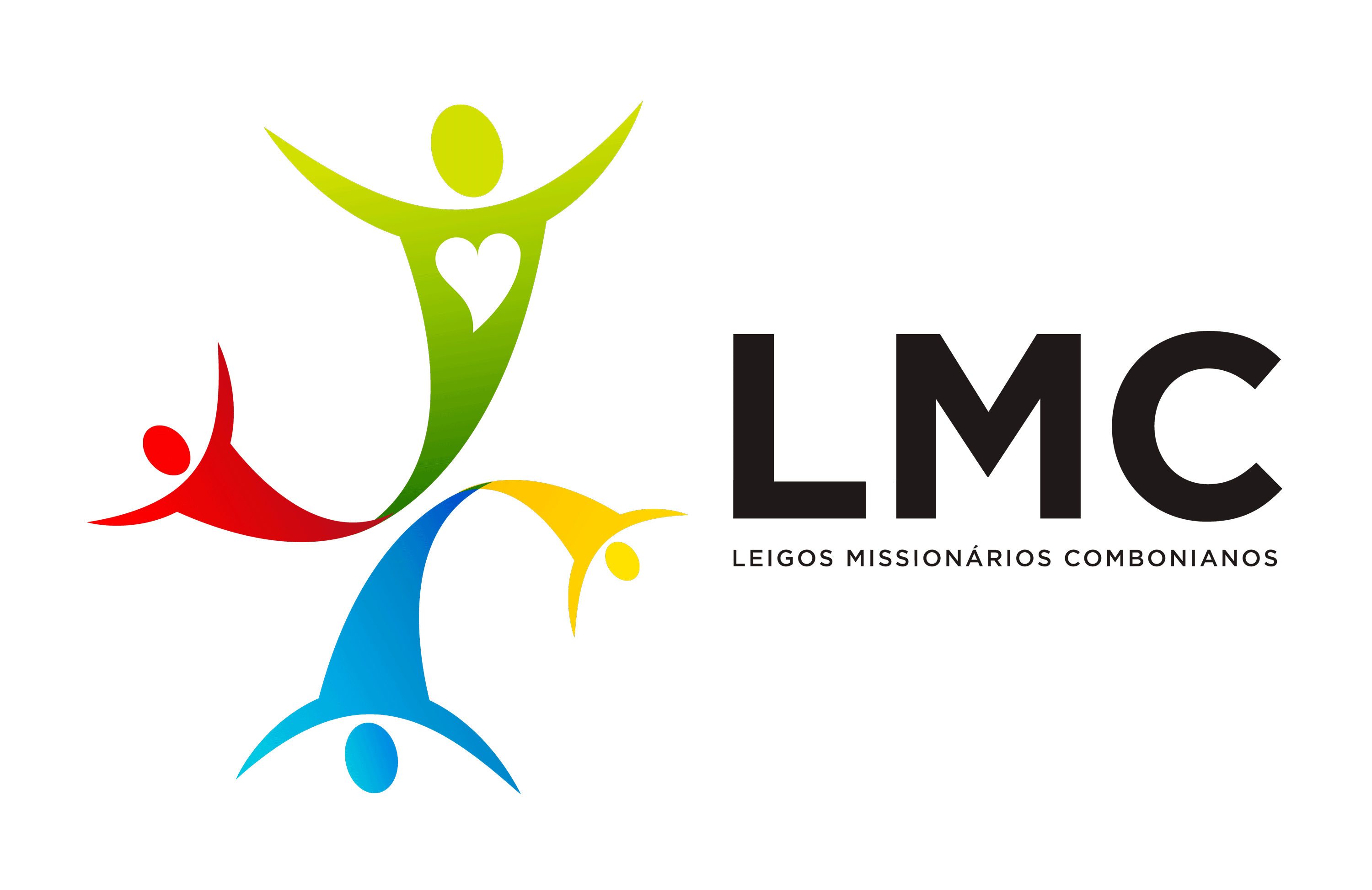 On January 25, 2016, the CLM of Portugal celebrated 18 years since its foundation. In this sense, and to commemorate this occasion, the Movement renews its image and will use a new logo.
On January 25, 2016, the CLM of Portugal celebrated 18 years since its foundation. In this sense, and to commemorate this occasion, the Movement renews its image and will use a new logo.
This new logo incorporates key elements of Comboni lay spirituality:
- The Cross
- Jesus Christ
In first place, 4 figures forming a cross. “… The cross is the mark of all the redemptive acts of God, because all of them are born and grow at the foot of the cross.” (St. Daniel Comboni, W.4564). We are also aware that the mission constitutes acceptance of the inevitable difficulties and sufferings with the mark of the cross. However, we know that in the difficulties, in the feeling of failure or frustration, Jesus always generated and generates life for its people.
- International and intercultural
The 4 figures forming the cross with the colors of the continents (Africa, Asia, America and Oceania), appear with open arms (which gives the idea of movement, going out), mean joy, availability and the call all Comboni Lay Missionary to proclaim Jesus Christ to those who still do not know Him. The white heart in the green figure represents the European continent.
A missionary characteristic is to live in provisionality, not “settling roots”, with all the precariousness and fragility that this may involve; feeling walkers toward God and pilgrim to the brother. As missionaries we are, we have a positive and real will to go towards other people, living the mission ad gentes among other cultures, creeds and races, which is constitutive of our specific vocation. “The Mission must be Catholic, not Spanish, French, German or Italian. All Catholics must help the poor Africans, because one nation alone can not help the whole black race.” (St. Daniel Comboni, W.944).
- Sacred Heart of Jesus
The heart represented in the green figure intended to mean the great devotion of St. Daniel Comboni to the Sacred Heart of Jesus. In one of his letters, Comboni reveals that his Plan for the Regeneration of Africa was written in the Vatican at the time of the beatification of Margaret Mary. Coincidence or not, Comboni asks for her help, because she also loved much the Sacred Heart of Jesus. (St. Daniel Comboni, W.1736).
Is true that Comboni throughout his life always placed utmost confidence and devotion to the cross and the Sacred Heart of Jesus, to the point to devote all his Vicariate of Central Africa. “So I set the third Sunday of September, the 14th, dedicated to the Feast of the Cross, the day to solemnly consecrate the whole Vicariate of Central Africa to the Sacred Heart of Jesus.” (St. Daniel Comboni, W.3202).
- Love Africa and the poor
It is no coincidence that, this heart in the logo, is on the chest of the green figure, representing the African continent. Daniel Comboni gave his life to the heart of Africa, with Africa in his heart. Present in the death in Africa of one of his missionary companions, Comboni rather than discouraged feel inside confirmed the decision to continue its mission. “The last words of my brothers and myself will always be ‘Nigrizia or death.” (St. Daniel Comboni, W.3004).
- The importance of community life
The point of attachment of the 4 figures that make up the cross means our community life.
Our path has a Community dimension. It is important that the Movement seek structures that help strengthen the bond, the welcoming of those returning from mission, the group life, sharing life and faith, etc. This community life does not necessarily mean living “under the same roof” for the lay community life, it has its own characteristics and wealth. However, we believe that within this diversity of forms, it is essential to live in communion from the exchange of goods and faith. “Everything was bearable for these worthy ministers of Jesus Christ, who seek only the glory of God and the salvation of the most abandoned souls. In the small community of Khartoum was peace, order and the spirit of Jesus Christ.” (St. Daniel Comboni, W.2042).
CLM Portugal




